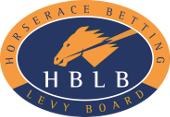Equine Veterinary Research Projects
The application round for projects to start in 2026 are now open with a submission deadline of 16th June 2025.
Applications are made online via the HBLB’s Equine Grants System.
The goal of HBLB’s veterinary research funding is to support scientifically robust research projects which will benefit the health and well-being of horses, particularly the Thoroughbred during racing, breeding and rearing, minimise the impact and improve the clinical management of disease and injury in all age groups and prevent injury and disease in racehorses.
The review process is informed by the priorities of key industry stakeholders and applications are assessed on their scientific merit, relevance to the Thoroughbred and the likely impact of the project on Thoroughbred racing, breeding and/or rearing.
Projects may address any aspect of equine basic, clinical or translational veterinary sciences aimed at the sub-cellular, cellular, tissue, whole animal and/or population levels. There are no restrictions on the specific scientific disciplines or technologies that are eligible for funding providing they are valid and pertinent. A multidisciplinary approach is often attractive. Projects should address a clearly defined hypothesis with specific, measurable, attainable, relevant and timely objectives.
HBLB publishes a comprehensive statement of the scope of its strategic research priorities: Priorities and Scope 2025.
The HBLB’s research priorities are aligned with the outcomes of the Horse Welfare Board’s strategic plan for the welfare of horses bred for racing (2020 – 2024):
- Best possible quality of life, which includes all aspects of healthcare, husbandry and disease control (eg improved methods of disease diagnosis, more effective vaccines, biosecurity and disease prevention strategies, antimicrobial and anthelmintic resistance)
- Best possible safety and well-being during breeding, training and racing (eg enhancement of diagnostic methods and restoration techniques after musculo-skeletal disease and injury, safer training and racing practices, minimisation of fatal and non-fatal injury)
- Lifetime responsibility for equine health (eg optimal health of breeding Thoroughbreds and youngstock, reproductive efficiency, evaluation of factors affecting transition to post-racing careers.
Since 1963, HBLB has supported 821 major research projects. From 2002, over £50 million has been invested by the HBLB and third parties in research projects, primarily for the benefit of the racing, breeding and rearing of the Thoroughbred, but which often benefit other equines as well.
